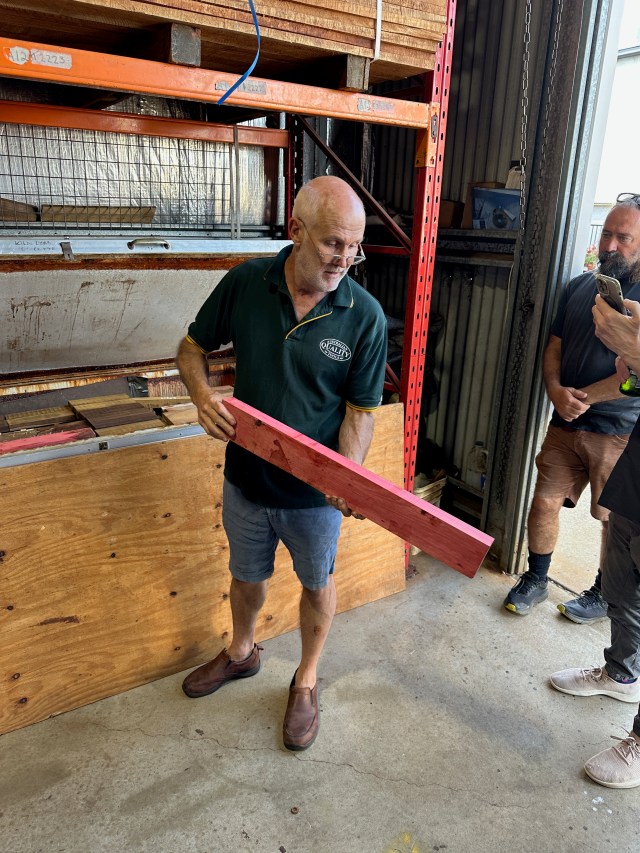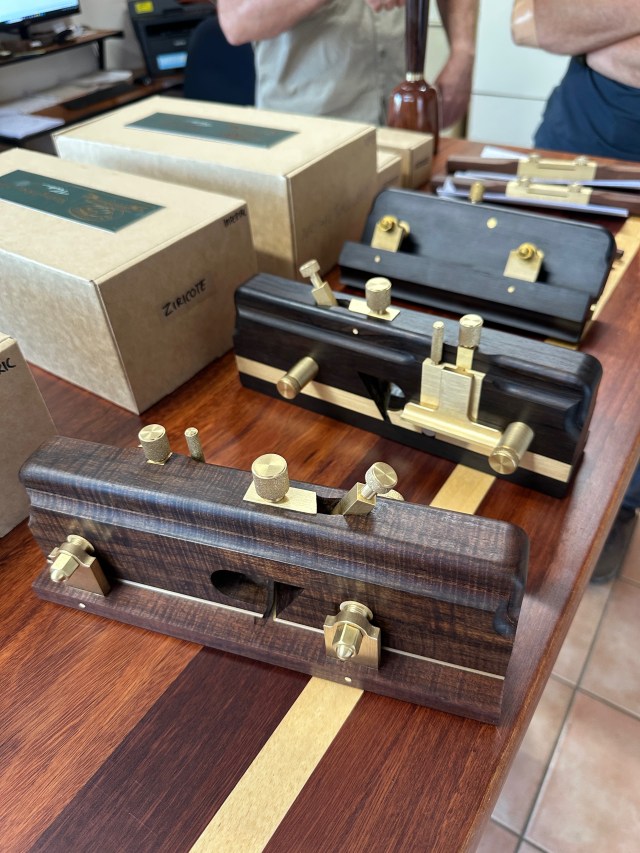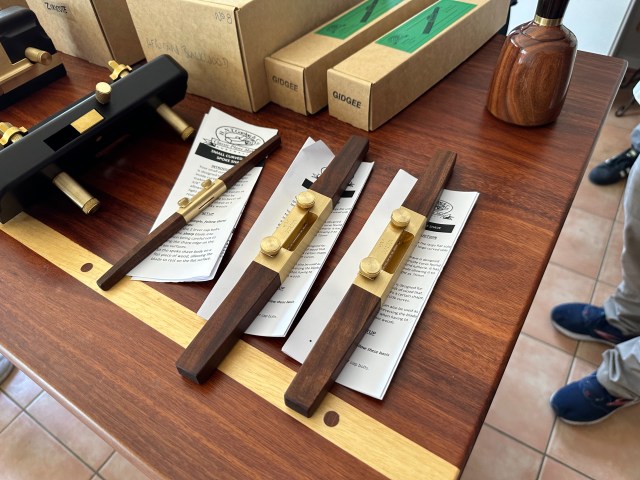Recently we’ve lost two important contributors to our craft: sawmaker Mike Wenzloff and historian Charles Hummel. I knew Mike fairly well, and I met Charlie in person only once. But both people made an indelible mark on me.
Mike Wenzloff was a pioneering sawmaker. During the early 2000s, Mike began making incredible handsaws and backsaws in a variety of patterns. He set up a small factory in Oregon to make them using a combination of hand techniques and automation.
For me, Mike was best known for his Kenyon-style saws. He was the first person I knew who made an entire set of the handsaws from the Benjamin Seaton tool chest for sale. And they were fantastic. From that set, I still own one of his sash saws (filed rip) and use it almost every day. His Kenyon tenon saw was an engineering feat and allowed woodworkers to understand how 18th-century tenon saws worked. They are nothing like modern tenon saws.
Mike was insistent that the prices of his saws should be reasonable so that beginners and middle-class woodworkers could afford them. While that made his business a struggle, he stuck to that idea until heart disease made him close down his sawmaking business.
After that, Mike immersed himself in cooking, according to his wife, Dina. And he began designing his own fonts.
Dina supplied the following obituary for Mike, and I’m posting it in its entirety.
Mike Wenzloff
February 15, 1956-July 25, 2025
Michael Kevin Wenzloff passed away July 25, 2025, in his home at age 69 after a long battle with heart disease. Mike was born February 15, 1956, in Everett, Washington, to parents Martha Anne (WHITE) and Richard Delmer Reed. He was later adopted by Otto Henry Wenzloff, Anne’s second husband.
Mike and his older brother, Rick, often spent summers with their grandparents Wilbur and Etta White. “Gramps” worked for the prison system two weeks on and two weeks off. He and the boys usually went hiking and fishing in the mountains of Washington every couple weeks.
Otto, Anne and the boys moved to Beaverton, Oregon, and then Tigard. Mike attended Tigard High School. Mike married Dina VanDerschelden, his wife of 51 years.
Mike worked for Otto at Tualatin Automotive, doing auto body repair and painting everything from small equipment to large dump trucks while Otto did most of the mechanics, training Mike at the same time.
In 1978, Mike, Dina and their son Kristofor moved to Sandpoint, Idaho, living in the log cabin they built without running water, electricity or phone for eight of their 10 years in Idaho. Two more sons, Albert and William, were born in the log cabin. In Idaho, Mike worked for the county and then went into the logging business. He loved working in the woods, especially cutting large trees and running a skidder.
Mike brought his family back to Oregon in 1988. There he attended Multnomah School of the Bible. During school Mike found he liked and had a knack for desktop publishing and all things computer. He started golfing and loved to golf with his sons.
Mike and Dina remodeled their home in Forest Grove, built in 1897. While there he took up woodworking and that grew into building handsaws with the help of his sons, Kris and Will, and nephew, Jacob. Wenzloff and Sons Sawmakers was a small family business until health concerns prevented Mike from continuing.
Mike was preceded in death by his mother, Anne Wenzloff, his birth father, Dick Reed, his brother Rick, and step sister Jackie.
Still living in Mike’s family are his father, Otto Wenzloff (Pam); Dick’s wife, Marlene; Mike’s wife, Dina; sons; Kris (Coleen), Al (Amy), and Will (Katie), granddaughters: Jaclynn (James), Sylvia and Zimri; grandsons: Wendell and Ezra; great grandson Noah; great granddaughter Gracelyn; step sister Gigi (Craig); nephews Jacob and Jordan, niece, Jennifer; and Otto’s three daughters, Dede, Grace, and Cheyenne.
Charles Hummel
It’s really not possible for me to pay tribute to Charles Hummel, a longtime historian at Winterthur and the author of “With Hammer in Hand.” Charlie literally wrote the book on how to cover historical woodworking practice.
“With Hammer in Hand” is the blueprint for how research and exposition are handled with historical woodworking practice. Charlie raised the bar for everyone, and the result is that books on historical practice are much less romantic and far more useful.
Charlie was also willing to help almost anyone else interested in historical practice, including Jennie Alexander, Peter Follansbee and a long list of other people exploring traditional practice.
I met him in person only once – at Jennie Alexander’s memorial. I was amazed at how sharp Charlie was. It was like talking to a 40-year-old genius.
You can read a more complete obituary here.
— Christopher Schwarz
Like this:
Like Loading...

















